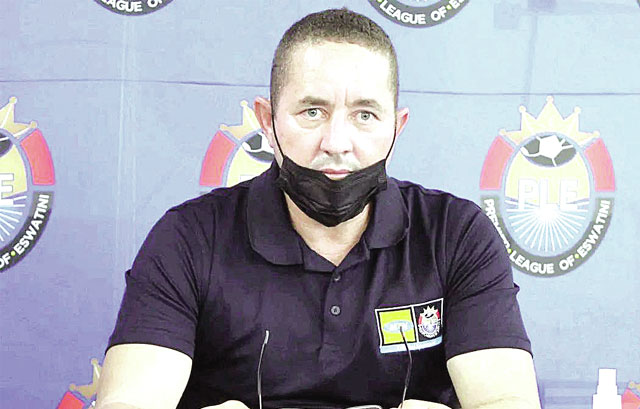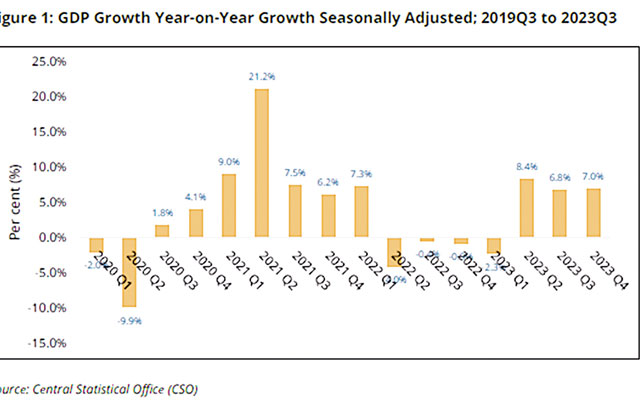By David Dlamini | 2021-12-07
African countries/developing countries in particular, remain beleaguered by a range of factors that perpetually render them politically unstable.
Sources for political instability vary, but have the same effect in any country, leaders in the developing world need to be preoccupied with the stubborn factors that cause political instability. Leaders who are able to retain the trust of the public in government institutions, and cultivate a culture of accountability, demonstrate a vision that goes beyond just serving their short- term political interests.
The issue of political instability becomes even more important in the context of change and transition, protagonists /participants in such processes must demonstrate an unwavering commitment to political stability. The political rhetoric dominating the social network space is really worrying, we hear people who desire to contribute to the development of the country speaking in a manner that foments the kind of tensions that create conditions ideal for political instability.
We have heard in the past couple of months some leaders from the progressive camp actually going to the extent of prescribing what the country’s development partners should do, the case of the loan for the proposed construction of our new parliament deserves special mention here; in fact the progressive leaders threatened to harm the financial interests of any developing partner who may help fund the project. These utterances, whilst they carry absolutely no political weight, as they`re clearly undemocratic and represent a brazen usurpation of the rights only reserved for elected officials; they are sufficient in demonstrating the very poor appreciation of diplomacy by these crops of progressive leaders.
Africa`s development agenda is heavily dependent on external development partners, and any threatening tone directed to this constituency has a serious ripple effect on the long-term attractiveness of the country to such partners. Genuine leaders expend a lot of time giving assurances to the jittery development partners constituency, this is the reason why great statesmen agitating for church are careful not to upset these partnerships; bigger countries in our region who underwent transitions also committed resources to ensure that credible leaders were dispatched to the capitals of the developed world to offer assurances that any transition will be managed in a manner that will not jeopardize the trust and relations cultivated over decades.
The economic cost
Political instability has already proven to be a death knell to our fragile economy, the incentives we deploy to entice investors to come here are hardly unique, the one unmatchable strength we have had is our peace and political stability. Political instability discourages local investors from expansion, and new entrants are dissuaded from considering opening shop here. The momentary loss of this unmatchable strength, and we pray its only momentary, has hurt all our ambitious goals of remaining attractive to Foreign Direct Investors (FDI`s).
The anarchy orchestrated by the divisive and inciteful politics of progressives has an adverse impact in our modest economy, in fact the impact is far worse than the international community- backed tool and strategy of economic sanctions. The former can not offer credible leadership and an attitude of commitment to a negotiated settlement, whereas the latter is built around a culture of credible leadership and an assurance to a negotiated settlement.
The inclination by progressives in the region to use trade unions to advance their political interests is yet another acidic ingredient in these self-destructive drives, again the country is especially vulnerable because of its modest economy.
The infusion of mistrust and tension in the very critical tripartite structure (Government, Private Sector, and Labour) indicates failure by leaders of the labour sector to appreciate their overarching responsibility to be a responsible partner in our economic development endeavours.
The folly of intransigence in
political leadership
We know progressive leaders across our borders are in the habit of uttering inflammatory and anti-business diatribes, such utterances rarely have their desired impact in that country.
The strong heavily internationally-linked economy of that country muffles these otherwise unhelpful utterances, and as such the utterances account for far little than mere sloganeering.
But the same intransigence has a different impact here, it creates an atmosphere of fear and uncertainty, which is destructive to our apolitical business and economic aspirations.
The sad experience of a national business federation that was coerced into signing a protection agreement, akin to the notorious Mafia protection fees, with some progressive entities is, tragic as it is, the best illustration of our argument here. But this intransigence demonstrated by progressive leaders is not conducive to a people-centerred negotiations environment.
The intransigence is instead creating an artificial polarisation in our political discourse, the reality is that such a stance will never lead to any meaningful resolution of our challenges.
This stance has in fact become part of the problems that true statesmanship and political soundness needs to help resolve.
The still unsettled education sector
The recent normal resumption of schooling in the country is highly appreciated and welcomed, the disruptions caused by the anarchy will have a long -term effect in our country, most unfortunately on the credibility of our education. Submissions made by principals in their recent meeting held in Manzini were really revealing of the extent of the damage caused by the recent anarchy, not just on schools’ infrastructure but also on the teacher -learner symbiotic relationship.
Principals reminded us of the numerous cases where teachers and principals were actually assaulted by pupils, and helped all of us to question if the current teaching and learning environment is conducive. Clearly the volatility created by the anarchy has created tensions that will require a lot of time and skill to resolve. We are faced with the specter, as a result of the anarchy, of a growing number of unemployable youths – an ingredient for political instability. The same volatility has also affected our tertiary institutions, the same results of uncertainty and credibility feature strongly here, the skills and competencies received will remain highly questionable. The fiercely competitive job market requires nothing less than excellence, and local graduates are increasingly becoming less likely to compete successfully against externally trained graduates. This adds to the increasing number of unemployed and unemployable youth.
The potential for conflict
While every conservative leader is at pains trying to assuage an increasingly jittery business community, these noble efforts are being undermined by the lack of strong and credible leadership in our politics. Both progressives and conservatives are demonstrating a state of leadership preparedness that is far from reassuring. The strained political atmosphere, seemingly merely fomented to create enough instability, has the potential to lead to serious conflict. Our often-repeated argument that just the homogenous ethnicity of the country offers enough guarantees against destructive conflict can no longer be held with any integrity.
The bloody conflict between progressives and traditionalists in the Kwazulu Natal Province, a largely ethnically homogeneous province, in the 90`s offers no such guarantees. Not even the iconic Mandela could resolve that crises, it is clear that local protagonists in the ongoing tensions have far less leadership gravitas to steer the country away from a conflict situation. Conservative Christians and Evangelicals are far better equipped to lead in an entirely altruistic manner in such situations, the thirst for power by the rest of the protagonists only serves to fuel the potential for conflict. Its really bizarre to hear of progressive’s meetings where participants are said to be discussing allocation of cabinet positions, their sheer desire for immediate power at all costs creates a worrying potential for conflict.
Police and Law Enforcement bashing
Political leaders in all structures of government need to be conscientised of the general anti-establishment strategy to create mistrust between the public and government. Public officials must commit to reasoned, legal, and fair responses to claims of abuse of power by the police. Parliamentarian and cabinet ministers, in particular, must avoid the now fashionable knee- jack response to such allegations, with everyone too quick to level unfair accusations against the police. This attitude, we argue, is what has emboldened anti-establishment individuals and organisations to flagrantly break the law and provoke law enforcement officers.
We recently heard of police vehicles coming under fire from, obviously, unknown aggressors; urgent measures must be undertaken to reverse this evolving trend.
share story
Post Your Comments Below
ATHLETICS - A true marathon indeed!
The High court has issued an order to Athletics Eswatini...

SOCCER - FOLLOWING the submission of the 16-team league proposal by elite league and NFD clubs, t...

Minister of Information, Communication and Technology (ICT) Savannah Maziya says there is a criti...

Eswatini's economic activity, measured by Gross Domestic Product (GDP), grew at a steady pace of ...
All material © Swazi Observer. Material may not be published or reproduced in any form without prior written permission.
Design by Real Image Internet